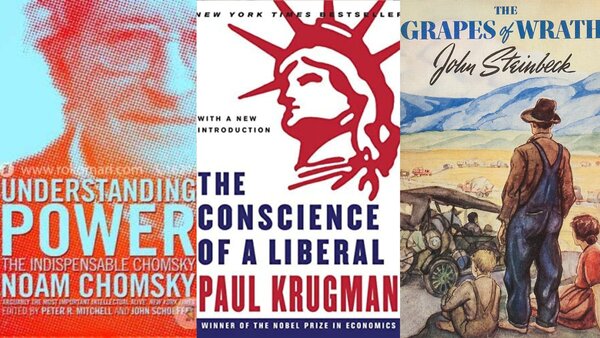The book serves as a cautionary tale and WhatsOn presents this week’s book selection. To satisfy your inner bookworm, immerse yourself in the novels on the list. By engaging yourself with the fresh books in your house this week, you can feed your mind.
“The Feminine Mystique” by Betty Friedan
Betty Friedan wrote the influential book “The Feminine Mystique” in 1963 based on her personal experiences as a reclusive suburban housewife. This work helped launch second-wave feminism in the US. The nonfiction piece makes the case that women can and ought to play significant roles in society that go beyond the house and conventional gender norms.
“Understanding Power” by Noam Chomsky
In “Understanding Power: The Indispensable Chomsky,” one of the greatest thinkers of our time Noam Chomsky analyzes three decades of US history using his expertise as a philosopher, historian, scientist, activist, and social critic. The 2002 book, which collects a number of his lectures on the politics of power, outlines the actions that must be taken for social change while drawing parallels between foreign policy and domestic social services.
“An Inconvenient Truth” by Al Gore
With his 2006 book “An Inconvenient Truth,” which he later adapted into two movies. Al Gore captured the attention of the entire globe. The work describes climate change in a way that is understandable to the general public. And which opened their eyes to the crisis of our world. It is based on his lecture tour on global warming. And the film was released in conjunction with the film of the same name.
“The Grapes of Wrath” by John Steinbeck
The literary works of John Steinbeck, especially “The Grapes of Wrath,”. The book were recognized when he received the Nobel Prize in Literature in 1962. The central character of the stirring epic from 1939 is a family of Oklahoma tenant farmers. The farmers who are evicted from their property during the Great Depression. It touches on contemporary concerns like labor unions and changes in the agricultural business. But it also examines timeless concepts like authority, family, self-interest, and dignity.
“The Conscience of a Liberal” by Paul Krugman
In “The Conscience of a Liberal,” economist and Nobel Prize winner Paul Krugman. He investigates the decline (after the Roaring Twenties) and subsequent rise (in the 1970s) of economic and political inequality. And it is over the course of 80 years of US history. The 2007 book, in the opinion of many, was a loud and urgent appeal for progressives. Which is to take control of the nation’s economic future.

